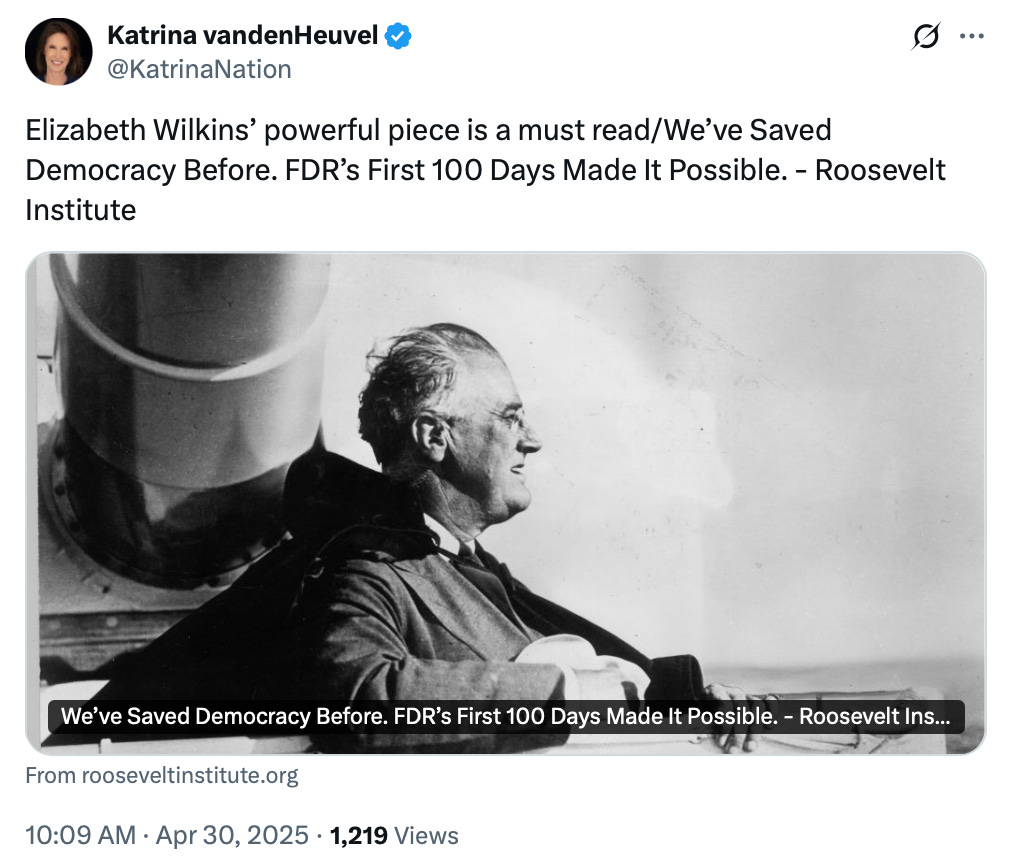Franklin Delano Roosevelt is one of the most important presidents of American history, a man who stabilized the economy during the Great Depression, laid the foundations of the social safety net, won World War II, invested in public infrastructure and beyond. So it’s no surprise that he’s often held up by contemporary progressives as a model for how to get things done, including in progressive publications like The Nation. Nor is it particularly surprising that the Roosevelt Institute is the name of a leading think tank on the progressive wing of the Democratic Party.
At the same time, I can’t help but think that the actual historical Franklin Delano Roosevelt is a much more complicated figure than the iconography would suggest.
He was, like everyone who gets things done in politics, a fundamentally pragmatic person who cared a lot about things like winning elections and building political coalitions. That meant, in his case, a lot of bowing to reality on the cultural issues of his time. These days, essentially every conference I go to features some procession of speakers who talk about how Democrats need to be pragmatic but also that we can’t just “abandon our values.” But on certain issues, FDR really did ruthlessly abandon progressive values. In some instances, he did this in ways that I think were tough-minded and admirable and that contemporary progressives should take more seriously as a model.
But in others, he did so in ways that make me profoundly uncomfortable and seem clearly much too far. Mass internment of Japanese-Americans, for example, really was more of a major historical crime than a concession to political reality.
I’m not arguing for FDR’s cancellation. But I do think it’s important to recall the complexity of history and the complexity of politics.
It’s relatively easy to find historical activists or writers whose ideas are uncomplicatedly admirable — people who took principled stands that were ahead of their time and helped shift long-term public opinion in a better direction. But nothing happens without practical politics, and practical politics is a fundamentally ugly business. It’s hard to know, really, how to definitively judge historical figures. But whatever you make of FDR’s choices, it’s just not the case that he’s a model of uncompromising progressive governance. The impulse on the left to claim him as such despite the facts is telling about the basic unworkability of the purist approach.
Probably the biggest example, in terms of both scope and significance, is the way the political power of the midcentury Democratic Party depended on hard-core segregationist politicians elected from the Jim Crow South.
Almost every white person at that time had ideas and attitudes about race that would be considered retrograde today. But FDR was not simply a person of his time.
.png)



![Is the AI bubble too big to burst? [video]](https://www.youtube.com/img/desktop/supported_browsers/firefox.png)

